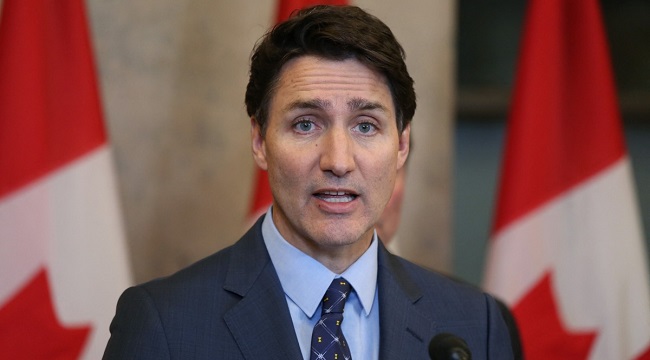Canada’s Prime Minister Justin Trudeau has announced his decision to resign, stating he will step down once the ruling Liberal Party selects a new leader.
The announcement, made on Monday, comes after months of declining poll numbers and internal party discord.
“I intend to resign as party leader, as prime minister, after the party selects its next leader,” Trudeau said during a press conference in Ottawa. His decision follows mounting pressure from top Liberal allies urging him to quit amid a prolonged political crisis.
READ ALSO: Canada’s Finance Minister, Chrystia Freeland Now Resigns
Trudeau, who has been in office since 2015, will remain in a caretaker role until his successor is chosen. He described the upcoming leadership race as a “robust, nationwide competitive process,” though the timeline for selecting the new leader remains unclear.
This development places Trudeau at the helm as Canada navigates the initial interactions with incoming U.S. President Donald Trump. With Trump threatening to impose a 25% tariff on all Canadian imports—a move that could severely impact Canada’s economy—Trudeau has vowed to retaliate, raising the stakes for cross-border relations.
Trudeau’s standing within the Liberal Party had been shaky throughout last year and worsened after the unexpected resignation of Finance Minister and Deputy Prime Minister Chrystia Freeland in December. Freeland, in a critical resignation letter, accused Trudeau of prioritizing political stunts, such as a costly Christmas tax holiday, over stabilizing Canada’s finances ahead of Trump’s proposed tariffs.
Freeland is now seen as a strong contender to lead the Liberal Party, alongside Mark Carney, former Governor of the Bank of England and Bank of Canada. Political analysts, like Lori Turnbull from Dalhousie University, believe the leadership race must be expedited. “Traditionally, it takes four to six months, but this time they’ve got to be quicker than that,” she remarked, emphasizing the urgency of having a leader in place for the next election.
Trudeau’s Liberal government, trailing behind the opposition Conservatives in polls, narrowly avoided three non-confidence votes in parliament last year. However, their alliance with the New Democratic Party (NDP) has unraveled, with the NDP signaling plans to topple Trudeau’s government at the earliest opportunity.
To buy time, Trudeau has secured approval from Canada’s governor general to suspend parliamentary activities until March 24. This move could allow the Liberals to focus on selecting a new leader while limiting the opposition’s ability to initiate a no-confidence vote.
As Trudeau prepares to exit, his resignation marks a pivotal moment for Canadian politics, with the Liberals racing to rebuild public trust and reposition themselves ahead of the next election.

